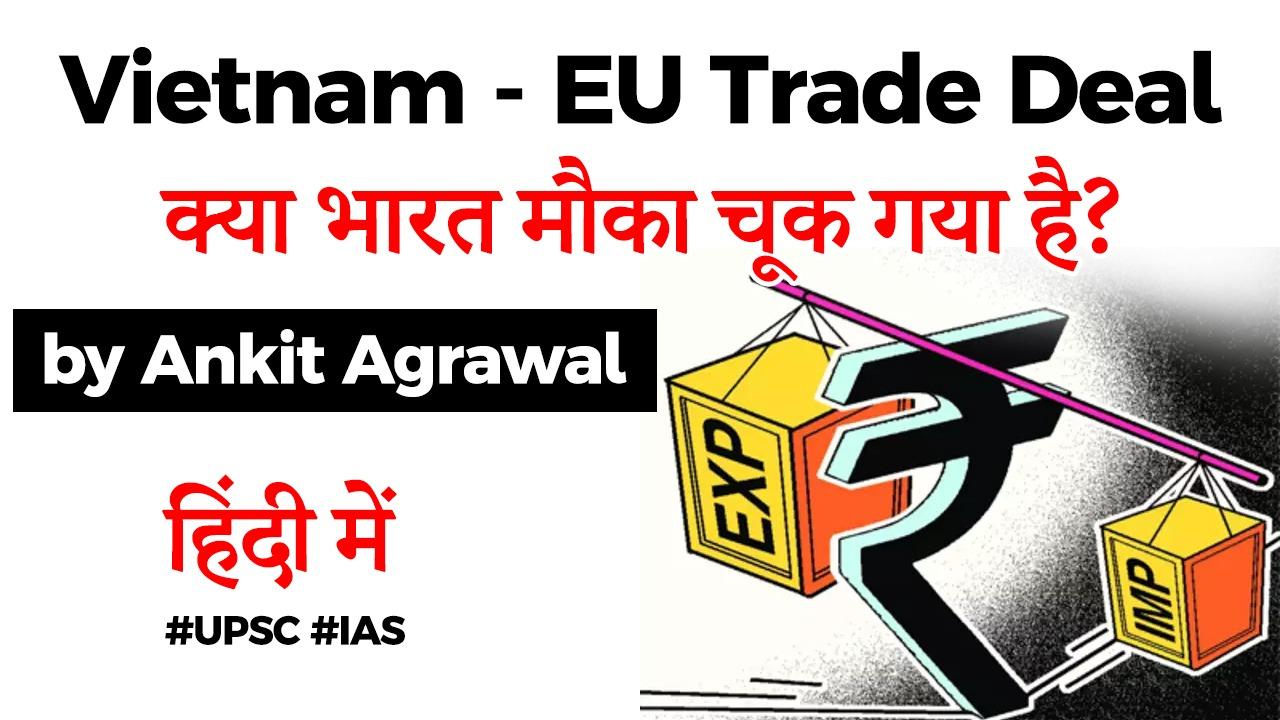Table of Contents


- Lawmakers in Vietnam’s National Assembly overwhelmingly voted to pass the deal.
- In a rare move and display of transparency, the vote was broadcast live on Vietnamese television.
- It is set to boost the country’s economyas it looks to maneuver through the coronavirus crisis.
- The deal, known as the EU-Vietnam Free Trade Agreement (EVFTA), has been in the works since 2012 but was held up for several years due to a series of legal hurdles.
- Officials signed off on the deal in Hanoi last June and it was ratified by the European Parliament in February this year.
- The implementation of the deal can’t come at a better time for Vietnam when it’s on the path of economic recoveryafter several months of closure due to COVID-19.
WHAT’S IN THE DEAL?
- The EU will lift 85% of its tariffson Vietnamese goods and gradually cut the rest of its tariffs over the next seven years.
- Vietnam will lift 49%of its import duties on EU exports, phasing out the rest over the next 10 years.10-06-2020
- It will also increase export turnover to the EU by around 20% this year and 44% by 2030.
- Hanoi also agreed to eliminate all forms of forced labor, to abolish child labor, and to allow workers the right to collective bargaining.
- In May, the World Bank said that the trade agreement could help lift hundreds of thousands of people out of povertyin Vietnam.
- Also boost the country’s GDP by 2.4% by 2030.

- Singapore is the only other Southeast Asian country to sign a free trade agreement with the EU.

BTIA
- Ties between India and EU have hit turbulence inlastfewyearswhen New Delhi refused to resume negotiations with Brussels to conclude the free trade agreement, officially known as the Broad-based Trade and Investment Agreement (BTIA).
- The talks for BTIA were launched in 2007.10-06-2020
- The Modi government has been insistent on starting fresh talks with the EU.
- Brussels, on the other hand, wantedIndia to conclude the talks on the Bilateral Investment Promotion and Protection Agreement (BIPPA) within the BTIA.
- Commerce and Industry Minister Nirmala Sitharaman, cancelled all investment treaties with EU member countries as New Delhi came out with a new model Bilateral Investment Treaty (BIT) text.
- But the European Commission had refused to negotiate with India on the new model text.

Latest Burning Issues | Free PDF






















 WhatsApp
WhatsApp